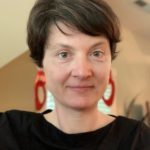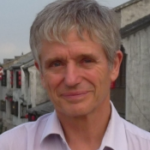2021 Regions in Recovery Plenary Speakers
All times below in British Summer time (BST). Check your own time zone here. Receive all the latest updates by following #RinR21 on Twitter.
Wednesday 2nd June 2021, 11:00 – 12:30 BST
Welcome to the E-Festival and Opening Plenary Panel
“Regions in Recovery”

Elisa Roller is Head of Unit in the RECOVER Task Force in the Secretariat General of the European Commission with responsibility for the preparation of the Recovery and Resilience Plans in Bulgaria, Croatia, France, Romania and Slovenia, and responsibility for public administration and business environment. Between 2012 and 2020, she was Head of a number of different units, including for the Common Fisheries Policy and Structural Policy Development and Economic Analysis in the Directorate-General for Maritime Affairs and Fisheries in the European Commission. Between 2008 and 2012, she was Deputy Head of Unit for Conception, Forward Studies and Impact Assessment, as well as for Communication and Relations with Third Countries in the Directorate-General for Regional Policy. Before joining the European Commission in 2003, she was a Lecturer in European Politics in the Department of Government, University of Manchester, UK. She received her PhD from the London School of Economics.

Isabelle is the director of BCNUEJ, an ICREA Research Professor, a Senior Researcher and Principal Investigator at ICTA and former coordinator of the research group Healthy Cities and Environmental Justice at IMIM. She obtained a PhD in Urban Studies and Planning from MIT before returning to Europe in 2011 with a Marie Curie International Incoming Fellowship. Situated at the intersection of urban planning and policy, social inequality and development studies, her research examines the extent to which urban plans and policy decisions contribute to more just, resilient, healthy, and sustainable cities, and how community groups in distressed neighbourhoods contest the existence, creation, or exacerbation of environmental inequities as a result of urban (re)development processes and policies. Since 2016, she is the PI of a five-year ERC-funded project called GreenLULUs which examines green inequalities in 40 cities in Europe, the US, and Canada.

Ayona Datta is Professor in Urban Geography in University College London. She works on the intersections of postcolonial urbanism, gender citizenship and the politics of urbanisation, focusing on new configurations of gender-power relations in the digital-territorial margins. Her current research seeks to advance theoretical and empirical insights into the production of urban futures through the investigation of smart cities in the global south. Her work has had high translatability into policy and public knowledge and has gained international recognition through invited presentations in UNCTAD, UN ECOSOC and UN-Habitat. For her contributions to understanding of smart cities through fieldwork, she received the Busk Medal from Royal Geographical Society (with IBG) in 2019. She is currently a member of the Research Excellence Framework 2021 Geography subpanel in the UK.

Professor Riccardo Crescenzi is a Full Professor of Economic Geography at the London School of Economics where he is also affiliated with the Centre for Economic Performance (CEP) and the Spatial Economics Research Centre (SERC). Riccardo is the current holder of a European Research Council (ERC) Grant. He is also an Associate at the Centre for International Development at the Harvard Kennedy School of Government, Harvard University. He has been a Visiting Scholar at the Harvard Kennedy School of Government’s Taubman Centre, at the University of California Los Angeles (UCLA) and a Jean Monnet Fellow at the European University Institute. Riccardo has provided academic advice to, amongst others, the European Investment Bank (EIB), the European Parliament, the European Commission, the Inter-American Investment Bank (IADB), the Organisation for Economic Co-operation and Development (OECD), the World Bank and various national and regional governments. Riccardo is the 2017 recipient of the Geoffrey J.D. Hewings Award from the North American Regional Science Council. His research is focused on Regional Economic Development and Growth, Innovation, Foreign Direct Investment, Global Value Chains and the analysis and evaluation of European Union policies.

Professor David Bailey is an influential business expert on economic restructuring and industrial policy and is perhaps best known for his knowledge of UK and West Midlands car manufacturing. Most recently, David has undertaken European funded research on using foreign investment to upgrade clusters and on industrial and regional policy. He has twice chaired the Regional Studies Association, and has acted as a Special Advisor to the House of Commons Select Committee on the West Midlands region, presenting to a number of select committees and All Party Parliamentary Groups. He has also been a Non-Executive Director at University Hospitals Birmingham NHS Foundation Trust from 2006-2013.
Tuesday 8th June 2021, 09:30 – 11:00 BST
ADP Annual Lecture
“Global Value Chains from an Evolutionary Economic Geography perspective: a research agenda”
Henry Yeung in his Annual Lecture for Regional Studies (2020), among others, has recently called for more mutual collaboration between the literature on Evolutionary Economic Geography on the one hand, and the literature on Global Value Chains on the other hand. In my lecture, I will present a few promising research avenues that adopt an Evolutionary Economic Geography perspective on Global Value Chains.

Ron Boschma is a Full Professor in Regional Economics at the Department of Human Geography and Spatial Planning at Utrecht University. He also holds a Chair in Innovation Studies at the UiS Business School, Stavanger Centre for Innovation Research, at Stavanger University. He has widely published in international journals on Evolutionary Economic Geography, the spatial evolution of industries, regional systems of innovation, the structure and evolution of networks, agglomeration externalities and regional growth.

Cecilia Rikap holds a PhD in economics from the Universidad de Buenos Aires. She is a tenure researcher at the CONICET, Argentina’s national research council, and associate researcher at the Centre de Population et Développement (CEPED), IRD/Université de Paris and at the COSTECH lab, Université de Technologie de Compiègne. In 2021, she was appointed co-director of the research center “Centro de Estudios Económicos del Desarrollo” of the Universidad Nacional de San Martín. Cecilia is also lecturer at the Universidad de Buenos Aires, Universidad Nacional de San Martín and Universidad Nacional de Quilmes. She is the outgoing coordinator of the “States and Markets” working group of the Young Scholars Initiative of the Institute for New Economic Thinking (INET). She studies the rising concentration of intangible assets, focusing on power relations and the distribution of data and innovation rents, resulting geopolitical tensions and the effects of intellectual monopoly capitalism on the knowledge commons and development. She recently published the book “Capitalism, Power and Innovation. Intellectual Monopoly Capitalism Uncovered”.

Dr. Canfei He is a Changjiang Scholar and Full Professor in Economic Geography at Peking University in China. He is the dean of college of urban and environmental sciences at Peking University and the deputy director of Peking University-Lincoln Institute Center for Urban Development and Land Policy. His main research interests include evolutionary economic geography and environmental economic geography in emerging economies, industrial geography and multinational corporations, urban and regional development. He earned his Ph.D degree in geography from Arizona State University in 2001.

Michael Dunford is a Visiting Professor, Institute of Geographical Sciences and Natural Resources Research (IGSNRR), Chinese Academy of Sciences, Emeritus Professor, School of Global Studies, University of Sussex, and Managing Editor of Area Development and Policy. He graduated with B.Sc in Geography and M.Sc in Quantitative Economics from the University of Bristol. His interests are in world development at multiple geographical scales from the local (urban, rural, regional) to the international level and with special reference at different times to Europe and the western world, China and Eurasia) drawing on materialist conceptions of history and geography and on theories of uneven and combined development, regulation and geopolitical economy.
Friday 18th June 2021, 16:00 – 17:15 BST
Closing Plenary
“Failing Federalism? US Dualist Federalism and the 2020 Pandemic”
After briefly reviewing the response across the US to the Covid-19 pandemic, attention turns to how the current federal system in the United States, operative since the 1980s, failed to work as it was supposed to. The rest of the presentation addresses the origins of the competitive-dualist version of US federalism (states versus the federal government) and why a more collaborative rather than competitive version, dubbed polyphonic federalism, would work better and also fulfill the promise of a stronger central government such as that which marked the most successful periods of US history such as the Progressive period in the early 1900s, the New Deal of the 1930s, and the Civil Rights era of the 1960s. The presentation continues with a discussion of the political barriers to moving past the dualist version, particularly the anti-federalism and neoliberalism of the contemporary Republican Party and the rural-southern bias built into the US constitutional system such as their overrepresentation in the US Senate and in the presidential Electoral College. I end with a brief discussion of the worldwide lessons to be drawn from the US experience with respect to the “balance” between centralization and decentralization in managing policy challenges.

John Agnew (Ph.D., Ohio State University, 1976) is Distinguished Professor of Geography with research interests in Political Geography, International Political Economy, European Urbanization, and Italy. Professor Agnew teaches courses in Political and European Geography. He is also a Professor in UCLA’s Department of Italian and was Visiting Professor of Political Geography at Queen’s University, Belfast, 2012-14. Editor-in-Chief, Territory, Politics, Governance, 2013-19 and the current President of the Regional Studies Association.

Virginie Mamadouh is Associate Professor of Political and cultural geography at the Department of Geography, Planning and International Development Studies (GPIO) of the University of Amsterdam (UvA). Her research interests pertain to diverse aspects of political and cultural geography. Virginie is teaching political geography courses as well as history/epistemology of geography in the Bachelor Sociale Geografie en Planologie and Advanced Political Geography and The professional geographer in the Master Human Geography and supervises thesis projects in master programmes at GPIO (Human Geography and Research Master Urban Studies). She supervises PhD students affiliated to AISSR in the field of political geography and geopolitics. Current projects are urban multilingualism and sense of place, geopolitical representations for/of the Dutch police, and Chinese biofuel policies.